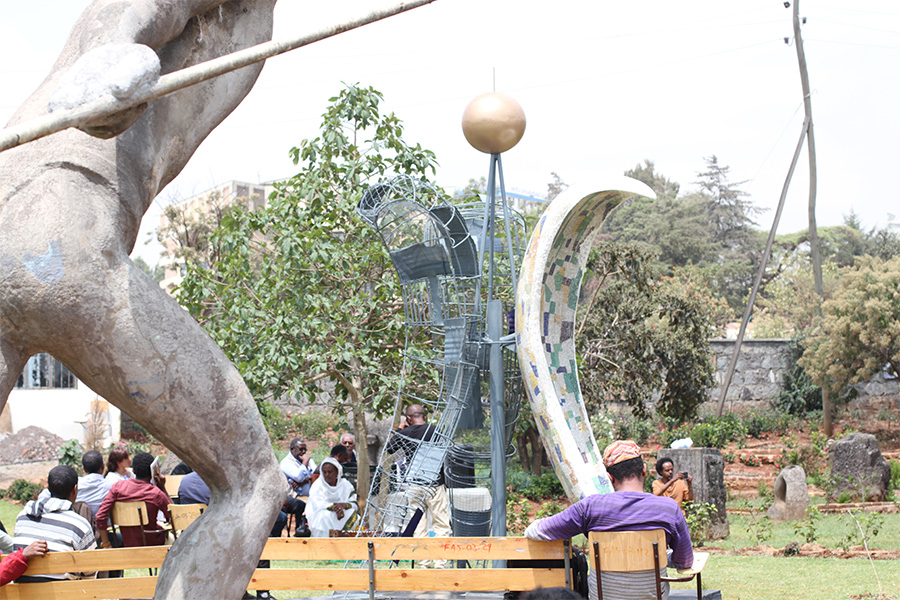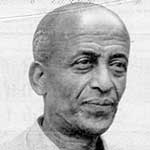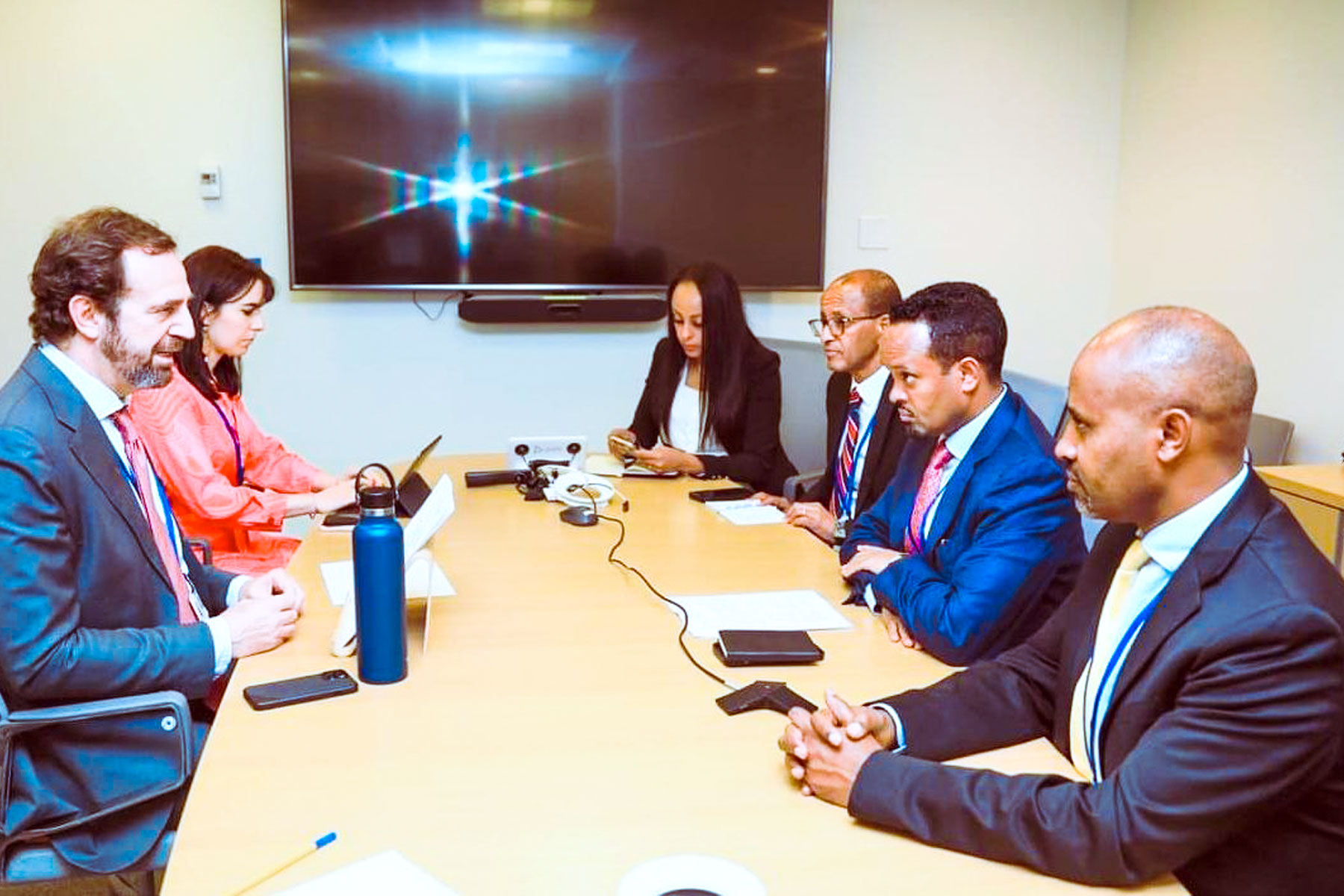
Verbatim | Oct 07,2023
Apr 6 , 2019
By Tsion Fisseha
Social media was recently flooded with the untimely death of Nipsey Hussle, aka Ermias Asghedom, an Eritrean American rapper who was shot and killed in Los Angeles last Sunday. The internet was filled with expressions of sorrow about the passing of this brilliant artist who was cut short from a highly successful career.
Exactly a day after his death, his Wikipedia page read, “This article is being heavily edited because its subject has recently died.”
A lot can be said about life and death, the beauty of it, the thin line between the two states, the fear but also the exhilaration of the phenomenon. Death is inevitable, and unless one considers the unproven possibility of immortality, it is something that will eventually happen to all living things.
But how a person is able to create so much curiosity about themselves they have been unable to garner while alive is incredible. The episode with Nipsey Hussle is but one example that goes to prove the infatuation the living have with the dead.
Among the various things that occur after the passing of a person, the one that is most fascinating is the appreciation and desire to know more about the deceased.
In Ethiopia, this is expressed through a long eulogy read on the day of the funeral. People who are attending the funeral hear about the person that has crossed over. It is usually accolades heaped on accolades, and how it would be impossible to fill the void that has been left.
Google search engines are filled with names of celebrities that have died and social media is infested with condolence, even from people who had no prior knowledge of the person that is no longer alive.
But events, no matter how devastating, are a knowledge platform for anyone who is willing to learn. And this particular incident can be used to understand that while the desire to keep the memories of the dead alive is not wrong by itself, people should be well aware of the fact that the living should be praised for what they have to offer.
The young boys and girls who show potential, the striving poet and the artist who is trying to get a break should be given the admiration while still roaming this earth. This should also be manifested throughout one’s lifetime interaction with friends, family, co-workers acquaintances and even strangers.
Not all of us are a Vincent Van Gogh, a great artist who died in 1890 and was only able to sell one of his paintings during his lifetime. Take Emily Dickinson, a great poet, or Galileo Galilee, the father of modern physics, all of whom had talents that were never cherished in their own lifetimes. These artists became an icons long after they were dead and gone.
The 13th-century Persian poet, Rumi, put it beautifully in one of his poems by explaining the need to love and give and care for one another when one is alive and breathing as opposed to shading tears onto the tombstones of the dead.
This goes on to show that we should not take for granted the people, animals and plants on this earth. We should not wait for death beds and last minutes to express the love and generosity, dwelling on the seemingly important yet petty ideals of life.
If anything, we should be aware that the only thing that is under our control is the moment. Everything after death is out of our reach.
PUBLISHED ON
Apr 06,2019 [ VOL
19 , NO
988]


Verbatim | Oct 07,2023

Radar | Mar 14,2020

Radar | Jul 27,2019

My Opinion | Feb 24,2024

Radar | Dec 10,2022

Verbatim | Sep 14,2019

Featured | Aug 29,2020

Viewpoints | Mar 14,2020

My Opinion | Nov 27,2018

Viewpoints | Nov 14,2020

Photo Gallery | 96742 Views | May 06,2019

Photo Gallery | 88925 Views | Apr 26,2019

My Opinion | 67168 Views | Aug 14,2021

Commentaries | 65761 Views | Oct 02,2021

Feb 24 , 2024 . By MUNIR SHEMSU
Abel Yeshitila, a real estate developer with a 12-year track record, finds himself unable to sell homes in his latest venture. Despite slash...

Feb 10 , 2024 . By MUNIR SHEMSU
In his last week's address to Parliament, Prime Minister Abiy Ahmed (PhD) painted a picture of an economy...

Jan 7 , 2024
In the realm of international finance and diplomacy, few cities hold the distinction that Addis Abeba doe...

Sep 30 , 2023 . By AKSAH ITALO
On a chilly morning outside Ke'Geberew Market, Yeshi Chane, a 35-year-old mother cradling her seven-month-old baby, stands amidst the throng...

Apr 20 , 2024
In a departure from its traditionally opaque practices, the National Bank of Ethiopia...

Apr 13 , 2024
In the hushed corridors of the legislative house on Lorenzo Te'azaz Road (Arat Kilo)...

Apr 6 , 2024
In a rather unsettling turn of events, the state-owned Commercial Bank of Ethiopia (C...

Mar 30 , 2024
Ethiopian authorities find themselves at a crossroads in the shadow of a global econo...

Apr 20 , 2024
Ethiopia's economic reform negotiations with the International Monetary Fund (IMF) are in their fourth round, taking place in Washington, D...

Apr 20 , 2024 . By BERSABEH GEBRE
An undercurrent of controversy surrounds the appointment of founding members of Amhara Bank after regulat...

An ambitious cooperative housing initiative designed to provide thousands with affordable homes is mired...

Apr 20 , 2024 . By AKSAH ITALO
Ethiopia's juice manufacturers confront formidable economic challenges following the reclassification of...